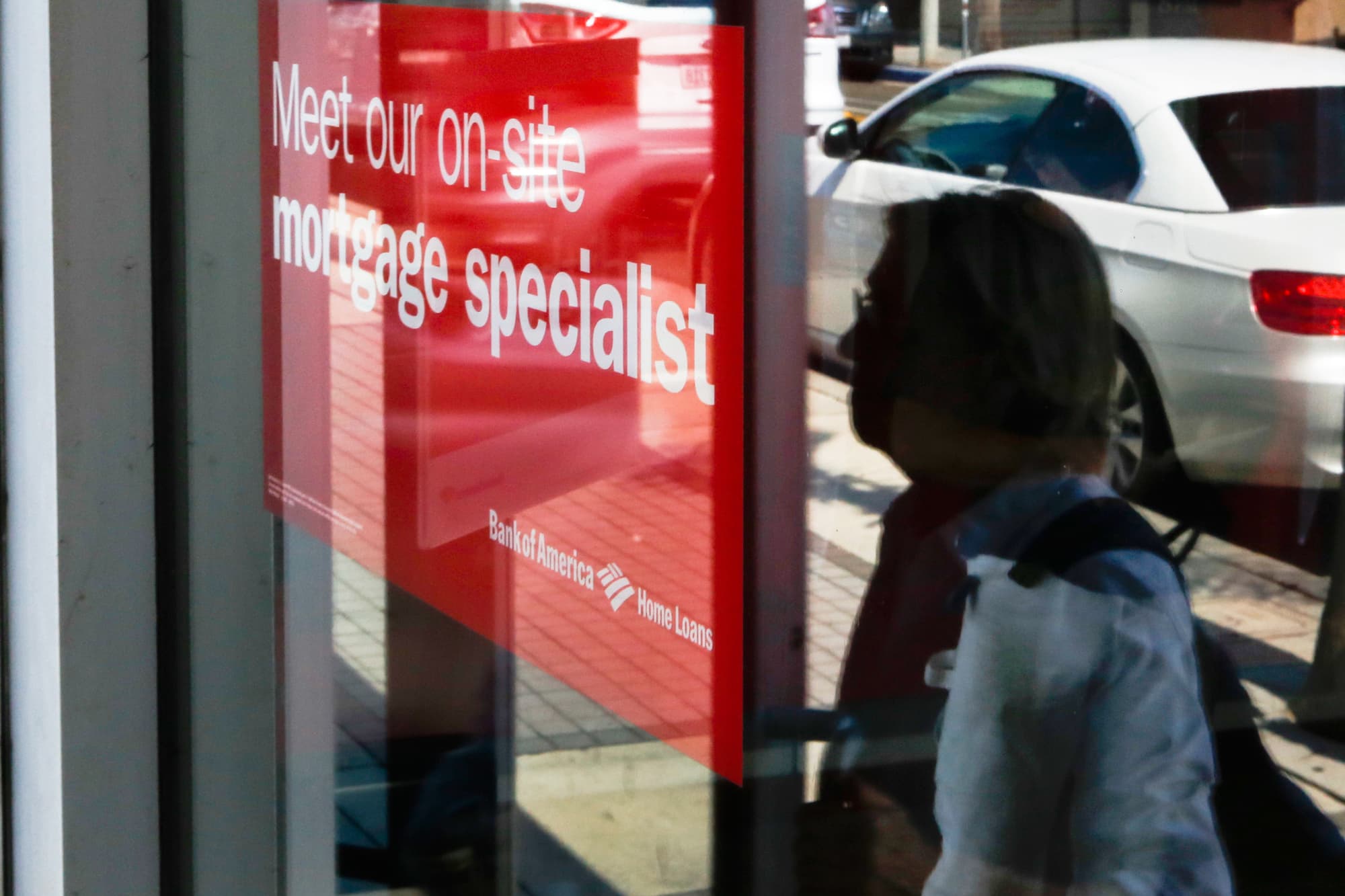A sign advertising home mortgage services at a Bank of America branch in Manhattan Beach, Calif.
Patrick T. Fallon | Bloomberg | Getty Images
Millions more borrowers can now save big on a mortgage finance as rates have hit the lowest level in more than three years.
The average rate on the 30-year fixed mortgage just hit 3.49%, according to a survey by Mortgage News Daily, matching the lowest level since October 2016. That is down from 3.8% at the start of January and 4.58% a year ago.
About 9.4 million borrowers could save an average $272 per month if they were to refinance to a lower rate, according to calculations by Black Knight Inc. Black Knight defines refinance candidates as 30-year mortgage holders with a maximum at least 20% equity in their homes and credit scores of 720 or higher, who could shave at least 0.75% off their current first lien rate by refinancing.
That is a collective $2.6 billion per month, the highest potential savings in 20 years. This is due in part to the fact that about 3 million homeowners took out their mortgages in the past three years. they could now save 0.75% on their rate or more by refinancing. That potential savings could be a huge boon to consumer spending.
Looking at borrowers with lower credit scores than Black Knight’s criteria, there are actually close to 19 million borrowers who have interest rates on their loans at least 0.75% higher than today’s rate.
In addition, more than 2.6 million of those borrowers could save $300 or more on their monthly principal and interest payment. Regionally, California and Florida have the most borrowers who would see the biggest benefit, due to higher home prices and larger mortgage balances in those states.
The unexpected drop in mortgage rates is due in large part to market fears over the coronavirus. Investors have been rushing to the relative safety of the bond market, pushing yields down. Mortgage rates loosely follow the yield on the 10-year Treasury.
While these calculations are for straight refinances, not cash-out refinances, there are plenty of borrowers who have sizable equity in their homes and could use these lower rates to take some cash. In fact, homeowners now have a collective $6 trillion in home equity, beyond the 20% equity required for a cash-out refi.
Borrowers have been incredibly conservative about tapping their equity ever since the housing crash that defined the last decade. Just $54 billion in equity was withdrawn in the first quarter of last year, the lowest volume in four years and the lowest share of available equity tapped since Black Knight began tracking the metric in 2008.

